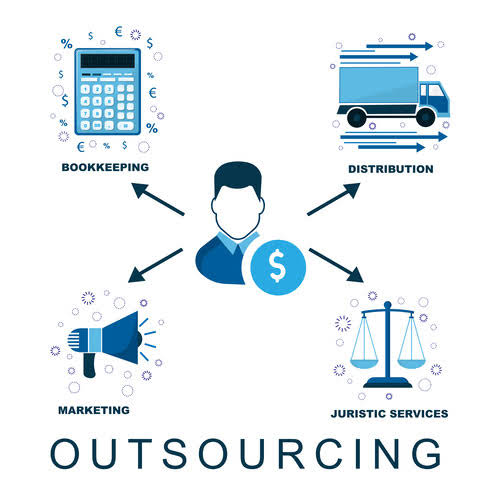
They are professionals who have undergone rigorous training and successfully passed the CPA exam, a challenging rite of passage. These individuals possess a deep understanding of accounting principles, taxation, and auditing, making them indispensable in the world of finance. Public accounting is the sentinel of financial integrity in the corporate world. At its core, it involves the analysis, verification, and assurance of financial information for public and private entities.
Career Center

To that end, we have built a network of industry professionals across higher education to review our content and ensure we are providing the most helpful information to our readers. Learners are advised to conduct additional research to ensure that courses and other credentials pursued meet their personal, professional, and financial goals. Cassie Nguyen, assistant chair of UB’s Department of Accounting and Law, is excited what is public accounting to have this new financial resource for attracting top accounting students to the master’s degree year. Let’s look at what impacts the future of public accounting in more detail. Becker has outlined the CPA requirements by state and territory to help make it easy to understand what you need. Also, CPAs are often eligible for higher-ranking roles within organizations, including senior management all the way to CFO.
- Local CPA organizations sometimes hold events for current and future CPAs.
- More opportunities and more responsibility often translate into a higher income, and typically, CPAs earn significantly more than non-CPAs.
- I love working with not-for-profit clients for that very reason — I feel like I’m really contributing to their mission by helping them have good financial information on which to make smart business decisions.
- Other majors are acceptable if the applicant meets minimum requirements for accounting courses.
- Failure to provide all of the required information as stated in this vacancy announcement may result in an ineligible rating or may affect the overall rating.
- A certified public accountant (CPA) is a licensed professional who has passed an examination administered by a state’s Board of Accountancy.
AICPA CPExpress: Unlimited online access to 600+ CPE credit hours
- Learn how to produce and analyze financial statements, payroll accounting functions, and more in the Intuit Bookkeeping Professional Certificate.
- As of 2024, NASBA lets states open a 30-month window for test-takers, a timeline which begins on the date they pass the first section.
- While public and private accounting are two distinct paths, it’s common for accountants to switch between them during the course of their careers.
- Thus, the shortage could become significantly worse before it gets better.
- That could mean doing a double major, taking additional college classes, or earning a master’s degree.
- To that end, we have built a network of industry professionals across higher education to review our content and ensure we are providing the most helpful information to our readers.
USACE is one of the world’s premier public engineering, design, and construction management agencies. USACE offers a team-inspiring and collaborative work environment; providing challenging and rewarding careers across a variety of disciplines. We rely on leaders with vision, creativity, and programmatic and technical expertise to lead us into the future. The modern public accountant must embrace lifelong learning, staying abreast of technological advancements and regulatory changes. Continuous education and professional development are essential to remain relevant and provide the highest level of service to clients. Public accountants in the technology industry face the challenge of dealing with rapidly evolving products and services.

Credentials & Designations
- You might even work with a CPA to determine the best strategy for managing your income and withdrawals from individual retirement accounts (IRAs) and 401(k)s in retirement.
- They provide expertise on tax planning, compliance, and strategies to optimize tax positions.
- The certified public accountant (CPA) is a license for working accountants that signals a degree of professional expertise.
- This designation allows you to certify financial statements for the SEC, represent clients before the IRS and sign off on audits.
- I really enjoyed working on various types of projects with different clients.
Also, candidates must pass one of three Discipline sections to gain specialized knowledge in more advanced topics. All states require at least one year of accounting experience to obtain licensure. Again, you’ll want to check with your state board of accountancy to see what type of experience you’ll need, the exact amount of hours and if part-time work is accepted.
- This can include the handling of many accounting functions on an outsourced basis.
- The IRS doesn’t rank the preparers on its list, but it does include credentials and qualifications.
- Therefore, you can take on additional duties related to the Internal Revenue Service (IRS) and Securities and Exchange Commission (SEC) that not all accountants can perform.
- They must ensure accurate product costing, manage inventory fluctuations, and navigate international taxation and trade regulations.
- Public accountants working in the financial services sector must grapple with intricate financial instruments, risk management, and regulatory compliance.
- Also, candidates must pass one of three Discipline sections to gain specialized knowledge in more advanced topics.
How do you become a CPA?
Matos began her career at Ernst & Young, where she audited a diverse set of companies, primarily in consumer products and media and entertainment. She has worked in private industry as an accountant for law firms and for ITOCHU Corporation, an international conglomerate that manages over 20 subsidiaries and affiliates. Matos stays up to date on changes in the accounting industry through educational courses.

CPA Requirements
Candidates upload their resumes, which employers can use to solicit applications for open positions. Previously, CPA examinees in every state had 18 months to pass all four sections of the test. As of 2024, NASBA lets states open a 30-month window for test-takers, a timeline which begins on the date they pass the first section.
Position sensitivity and risk
Let us know what type of degree you’re looking into, and we’ll find a list of the best programs to get you there. As a CPA, I find it can, at times, be challenging to manage various competing projects and deadlines. Also, especially during these unusual COVID times, it can be challenging to find the optimal balance between personal and professional priorities.
These professionals must satisfy state education and experience requirements and pass the Uniform CPA Examination to obtain licensure. You can be an accountant without being a certified public accountant, but earning a CPA license adds a valuable credential to your resume. It means you’ve passed a nationally recognized test that has been modified to reflect your state’s regulations. It opens the way to jobs that other accountants can’t take on, such as performing audits of public companies. A CPA is a financial professional licensed by a state board to provide accounting services to the public. A CPA performs accounting duties such as tax preparation, auditing, and consulting.

While noncertified accountants can qualify for entry-level jobs, managerial positions may require a CPA designation. CPAs use their knowledge of accounting and taxation to help businesses maintain their financial records. They can apply their expertise to multiple roles, including budget analyst, tax accountant, and auditor. While most states allow candidates to work in private or public settings, not every jurisdiction accepts academic work experience. Employees can usually work part time or full time to meet the experience requirements. A licensed CPA supervisor may need to submit documentation verifying a candidate’s experience.
What is the difference between an accountant and a CPA?
It is the process through which public accountants examine and verify a company’s financial records to ensure accuracy and compliance with accounting standards. The primary objective of an audit is to provide assurance to stakeholders, including shareholders, creditors, and the public, that a company’s financial statements are free from material misstatements or fraud. Public accountants provide a range of accounting services that extend far beyond traditional auditing and tax preparation. Their expertise is a pillar upon which businesses lean for strategic financial guidance. Advisory services offered by CPAs encompass financial planning, risk management, and even forensic accounting, where they uncover financial irregularities and fraud. As a certified public accountant, you’ll have the opportunity to work with individuals and businesses in various industries, advising on financial and tax-related matters.



